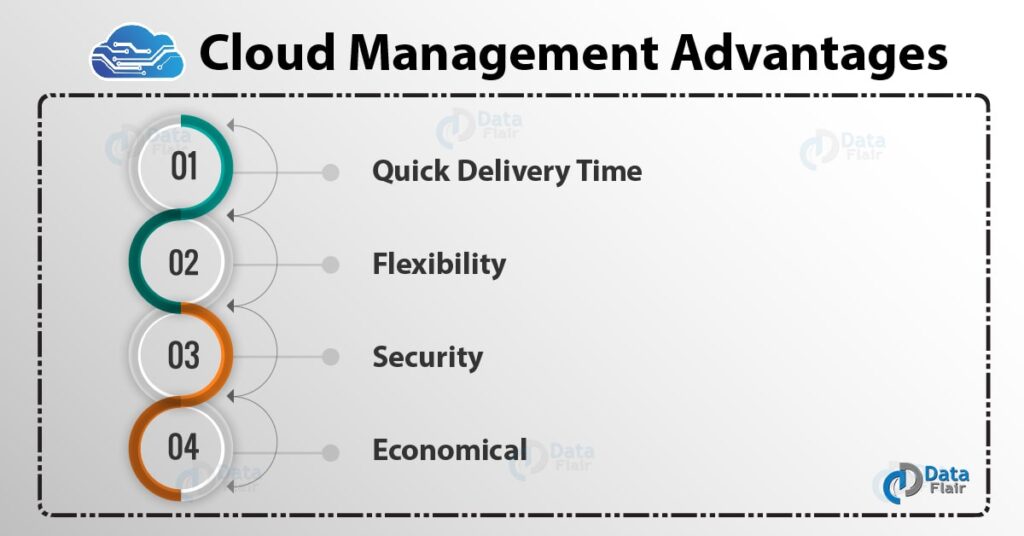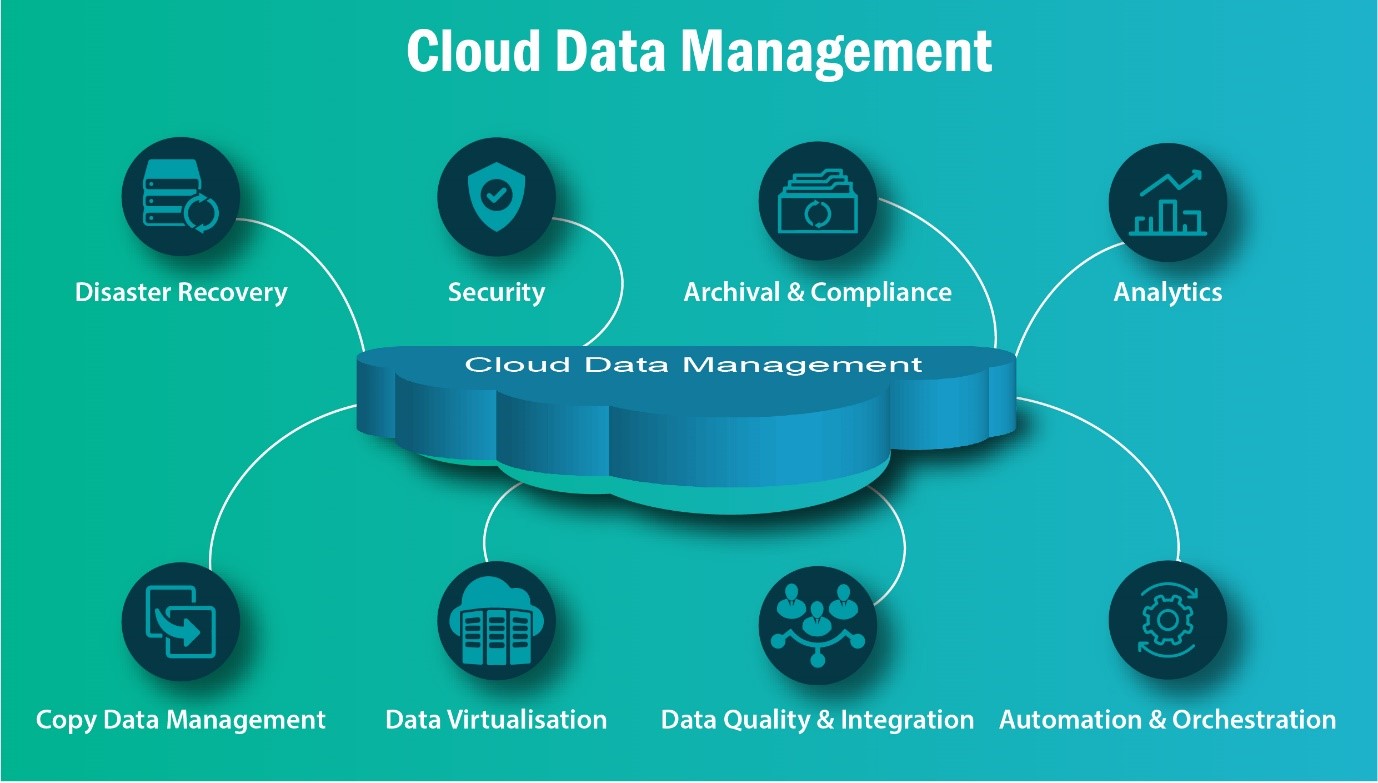Cloud computing has revolutionized the way in which companies retailer, entry, and handle their information. With the growing adoption of cloud providers, the necessity for efficient cloud data administration has change into paramount. On this final information, we’ll discover the significance of managing cloud data, the advantages it brings, the challenges confronted, greatest practices to comply with, instruments and applied sciences accessible, case research of profitable implementations, and future tendencies in cloud data administration.
Benefits of Managing Cloud Data

Managing cloud data presents a number of advantages to organizations. Firstly, it improves data safety. Cloud service suppliers make investments closely in strong safety measures, together with encryption, entry controls, and common safety updates. By managing cloud data successfully, companies can make sure the confidentiality, integrity, and availability of their data.
Secondly, managing cloud data enhances data accessibility. Cloud storage permits customers to entry their knowledge from anyplace, at any time, utilizing any machine with an web connection. This flexibility allows distant work, collaboration, and real-time data evaluation, resulting in improved productiveness and decision-making.
Moreover, managing cloud data can lead to price financial savings. Cloud providers provide pay-as-you-go pricing fashions, eliminating the necessity for upfront infrastructure investments. Moreover, companies can scale their storage and computing sources up or down as wanted, avoiding overprovisioning and decreasing operational prices.
Lastly, managing cloud data supplies scalability and suppleness. Cloud storage options can simply accommodate rising data volumes, permitting companies to scale their storage capability with out disruption. Furthermore, cloud providers provide a variety of data administration instruments and providers, enabling organizations to tailor their data administration methods to their particular wants.
Challenges in Managing Cloud Data

Whereas managing cloud data brings quite a few advantages, it additionally presents challenges that organizations should deal with. One of many major challenges is data privateness and compliance. Companies want to make sure that their cloud data administration practices adjust to related data safety rules, such because the Common Information Safety Regulation (GDPR) or the Well being Insurance coverage Portability and Accountability Act (HIPAA).
One other problem is data integration and migration. Organizations typically have data saved in varied methods and codecs, making it difficult to combine and migrate data to the cloud seamlessly. Data integration instruments and techniques are important to make sure a clean transition and keep knowledge integrity.
Information governance and management is one other problem in managing cloud data. Organizations want to ascertain clear insurance policies and procedures for data administration, together with data possession, entry controls, and data retention. With out correct governance, there’s a danger of data misuse, unauthorized entry, and data loss.
Best Practices for Managing Cloud Data

To successfully handle cloud data, organizations ought to comply with these best practices:
1. Data classification and categorization:
Classify data primarily based on its sensitivity and significance. Categorize data into totally different tiers primarily based on entry necessities and retention insurance policies.
2. Common data backups and catastrophe restoration plans:
Implement common data backups to make sure data availability in case of unintentional deletion, {hardware} failure, or cyber-attacks. Develop a complete catastrophe restoration plan to reduce downtime and data loss.
10 Mind-Blowing Facts About Cloud Data Security
3. Data encryption and entry controls:
Encrypt delicate data each in transit and at relaxation to guard it from unauthorized entry. Implement robust entry controls, together with multi-factor authentication and role-based entry, to make sure solely approved customers can entry the info.
4. Monitoring and auditing of data actions:
Implement strong monitoring and auditing mechanisms to trace data entry, modifications, and transfers. This helps in detecting any unauthorized actions and ensures compliance with data safety rules.
5. Data lifecycle administration:
Outline clear data lifecycle administration insurance policies, together with data retention and deletion. Frequently evaluate and replace these insurance policies to make sure compliance and optimize storage prices.
Tools and Technologies for Managing Cloud Data

A number of instruments and applied sciences can be found to help in managing cloud data successfully:
1. Cloud storage providers:
Fashionable cloud storage suppliers like Amazon Web Services (AWS), Microsoft Azure, and Google Cloud Platform provide strong data administration options, together with data encryption, entry controls, and data lifecycle administration.
2. Data administration platforms:
Platforms like Snowflake, Databricks, and Cloudera present complete data administration capabilities, together with data integration, data governance, and data analytics.
The Cloud Data Revolution: How It’s Changing Industries
3. Data integration tools:
Tools like Informatica, Talend, and SnapLogic assist in integrating data from varied sources and codecs into the cloud. These instruments guarantee data consistency, accuracy, and integrity in the course of the integration course of.
4. Data governance options:
Options like Collibra, Alation, and Informatica Axon allow organizations to ascertain data governance frameworks, together with data insurance policies, data lineage, and data high quality administration.
Future Trends in Cloud Data Management

The sector of cloud data management is consistently evolving, and a number of other future tendencies are anticipated to form its panorama:
1. Artificial intelligence and machine learning:
AI and ML applied sciences are being built-in into cloud data administration options to automate data processing, evaluation, and decision-making. These applied sciences will help organizations derive useful insights from their data and optimize data administration processes.
2. Edge computing and hybrid cloud options:
Edge computing, which includes processing data nearer to the supply or end-user, is gaining reputation. This pattern permits organizations to handle and analyze data in real-time, decreasing latency and bettering efficiency. Hybrid cloud options, combining private and non-private clouds, are additionally turning into extra prevalent, providing organizations better flexibility and management over their data.
3. Blockchain expertise for data integrity:
Blockchain expertise, recognized for its immutability and transparency, is being explored for data integrity and safety in cloud data administration. By leveraging blockchain, organizations can make sure the integrity and traceability of their data, decreasing the danger of data tampering and unauthorized modifications.
Conclusion
Efficient management of cloud data is essential for organizations to leverage the advantages of cloud computing whereas guaranteeing data safety, accessibility, and compliance. By following greatest practices, using acceptable instruments and applied sciences, and studying from profitable case research, organizations can optimize their cloud data administration methods. Moreover, staying up to date with future tendencies in cloud data administration will allow organizations to adapt and keep forward on this quickly evolving area.
How to Harness the Power of Cloud Data Analytics
FAQs
1. What’s cloud data management?
Cloud data management refers back to the practices, methods, and applied sciences used to successfully retailer, set up, safe, and make the most of data within the cloud atmosphere.
2. Why is managing cloud data important?
Managing cloud data is essential to ensure data safety, accessibility, compliance with rules, and to optimize data storage and utilization.
3. What are the challenges in managing cloud data?
Challenges in managing cloud data embrace data privateness and compliance, data integration and migration, and data governance and management.
4. What are the perfect practices for managing cloud data?
Finest practices for managing cloud data embrace data classification, common backups, information encryption, monitoring and auditing, and data lifecycle administration.
5. What instruments and applied sciences can be found for managing cloud data?
Instruments and applied sciences for managing cloud data embrace cloud storage suppliers, data administration platforms, data integration instruments, and data governance options.

귀하의 플랫폼은 저에게 진정한 계시였습니다. 통찰력의 깊이와 프레젠테이션의 명확성은 학습을 즐거운 경험으로 만들었습니다. 귀하의 전문 지식을 공유하고 수많은 사람들의 삶에 긍정적인 영향을 주셔서 감사합니다!